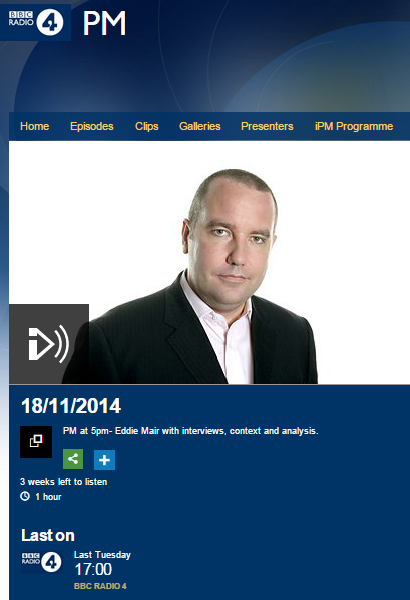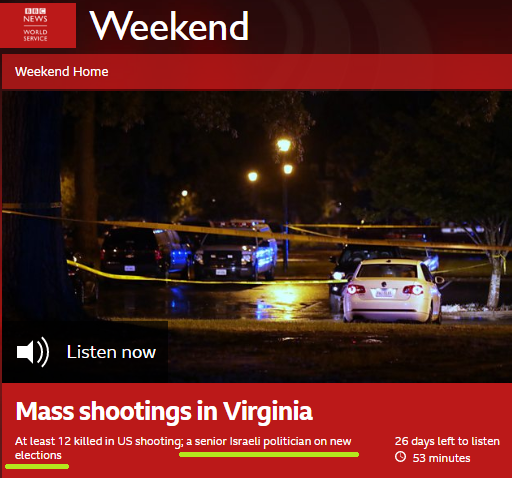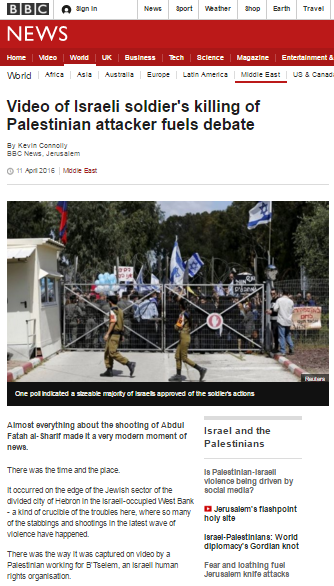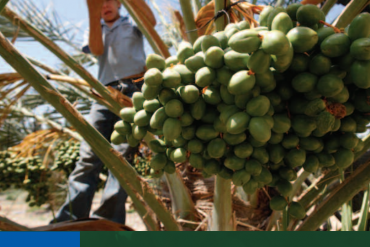Some eight hours after the terror attack in a synagogue in the Har Nof neighbourhood of Jerusalem on November 18th, the BBC Radio 4 programme PM – which purports to provide audiences with “interviews, context and analysis” – spent some twenty minutes or so of its broadcast (available here for a limited period of time) covering that subject.
In the news bulletin which followed the brief introduction to the programme, listeners heard the newsreader say:
“Four Jewish worshippers have been killed at a synagogue in Jerusalem by two Palestinian men armed with butchers’ knives and a gun. One of the dead has been named as 68 year-old Avraham Goldberg from Britain who went to live in Israel in 1991. The two attackers, from occupied East Jerusalem, were shot dead by police. Our Middle East correspondent Yolande Knell is in Jerusalem and says tensions are running high.”
Knell: “The Israeli prime minister Benjamin Netanyahu said that there will be a harsh response from Israel to this latest attack, calling it the cruel murder of Jews who came to pray and were killed by despicable murderers. Now on the Palestinian side, what they will say: Israel is also inciting the violence here in Jerusalem. In the last few weeks what we’ve had is this big flare-up in tensions over the Al Aqsa Mosque compound; about access to this important religious site. It’s the third holiest site in Islam. For Jews, who call it Temple Mount, it is the holiest site in their religion.”
Notably, a rare example of BBC use of the word incitement – a topic the BBC has consistently avoided addressing over the past few weeks when it is voiced by Palestinian leaders – came in the form of Yolande Knell taking it upon herself to paraphrase what she thinks “the Palestinian side” will say. Listeners then heard from Kevin Connolly who, after describing the incident – including a recording of the account of an eye-witness – and the subsequent funerals for four of the victims, went on to provide BBC audiences with ‘context’ for the incident which adds nothing new to the list of ‘reasons’ for the recent surge in violence and terrorism which the BBC has now been touting for weeks.
Connolly: “Now many underlying factors have contributed to a kind of toxic cocktail of grievances which is worsening the atmosphere here in Jerusalem, not least the summer conflict in Gaza and continuing Jewish settlement in East Jerusalem. But the biggest single factor is a generations-old dispute over rights to worship at a holy place in Jerusalem’s Old City. Muslims alone have the right to pray at al Haram al Sharif or the Temple Mount. Israel, which controls the Old City, says no change is even contemplated but rumours that Jews might be allowed to pray there have an incendiary effect in Palestinian society and in the wider Islamic world.”
As ever, Connolly made no attempt to explore why “Palestinian society” and “the wider Islamic world” should be so offended by the prospect of equal prayer rights for members of all religions at a site important to Christians, Jews and Muslims alike. After a brief recording of a statement by Israel’s Minister of Justice Tsipi Livni, Connolly continued:
“Now, Palestinians blame Israel for the increase in tensions in recent times, pointing not just to that religious dispute but to those other factors I mentioned: continuing Jewish settlement in Arab East Jerusalem and the loss of life in the summer war in Gaza.”
Once again we see employment of the term “Arab East Jerusalem” – terminology the BBC’s style guide recommends should be avoided – as well as the inaccurate depiction of the summer conflict as having taken place exclusively in Gaza. Notably, Connolly made no attempt to inform listeners of Hamas’ responsibility for the “loss of life” in that war, be it by the terrorist organisation’s initiation of the conflict through missile fire at civilian targets in Israel, its use of cross-border attack tunnels or its deliberate employment of human shields throughout the conflict. Connolly continued, introducing a BBC ‘frequent flyer‘ who is – not for the first time – described as “influential” despite the fact that his party secured a mere two seats in the Palestinian Legislative Council in the last elections in 2006.
“Mustafa Barghouti is an influential Palestinian politician.”
Barghouti: “They’ve been provoking the Palestinians constantly. I want to remind you and I remind everybody that since the beginning of this year, the Israeli army and Israeli settlers have killed 2,260 Palestinians in Gaza and the West Bank, including 600 children. And they’ve been attacking the mosque in…Al Aqsa Mosque…and the settlers have been attacking Palestinians. This is a very explosive atmosphere and I hold Netanyahu himself responsible for every bloodshed that has happened whether for Palestinians or Israelis.”
Connolly made no attempt whatsoever to put Barghouti’s propaganda into its correct context by informing listeners how many of those Palestinian casualties were terrorists or violent rioters. He also failed to point out that, contrary to Barghouti’s baseless allegation, nobody has “been attacking” the Al Aqsa Mosque. Instead, Connolly’s closing words once again promoted the BBC’s redundant ‘cycle of violence’ mantra which of course avoids ascribing any agency to Palestinians.
The item then moved on to an interview with the cousin of the British-Israeli man murdered in the Har Nof terror attack, Avraham Goldberg, after which – presumably in order to provide audiences with the context and analysis promised by the programme – presenter Eddie Mair interviewed Professor Rosemary Hollis of City University London. That part of the programme will be discussed in part two of this post.




